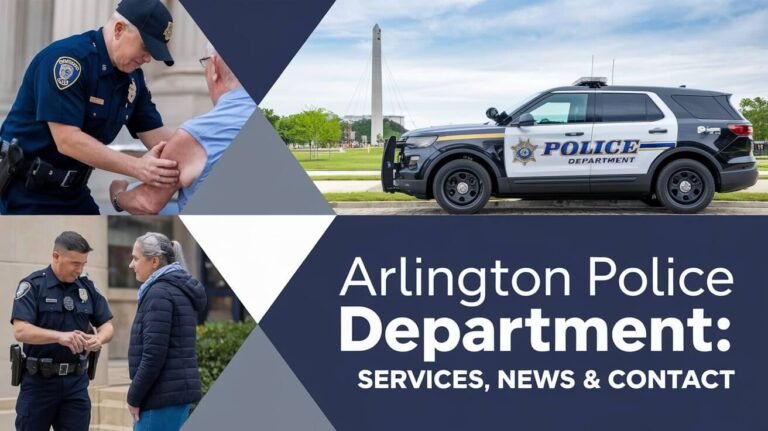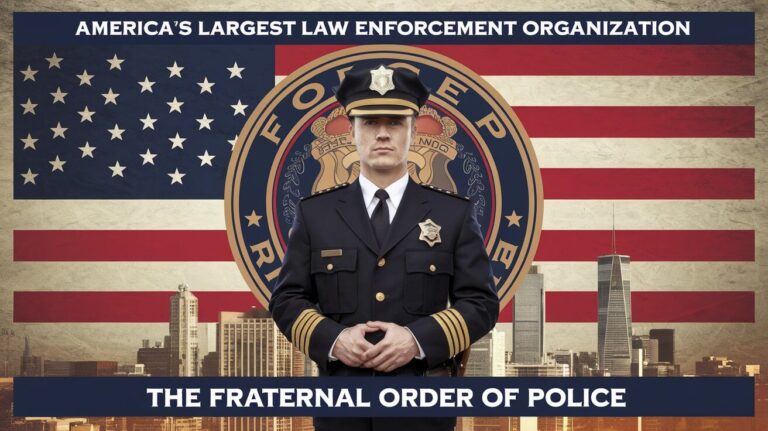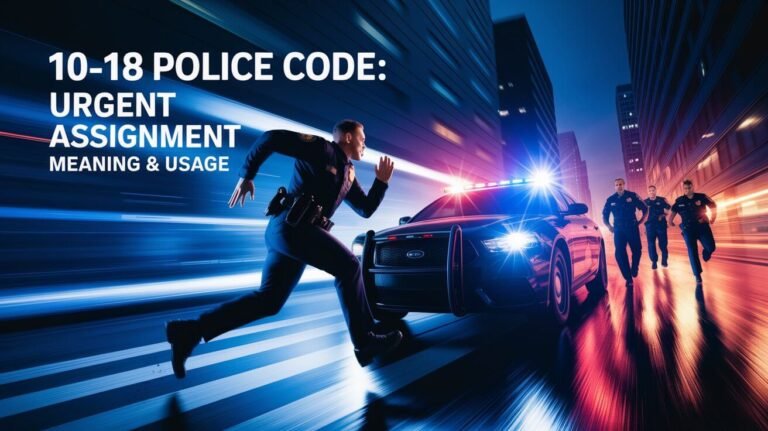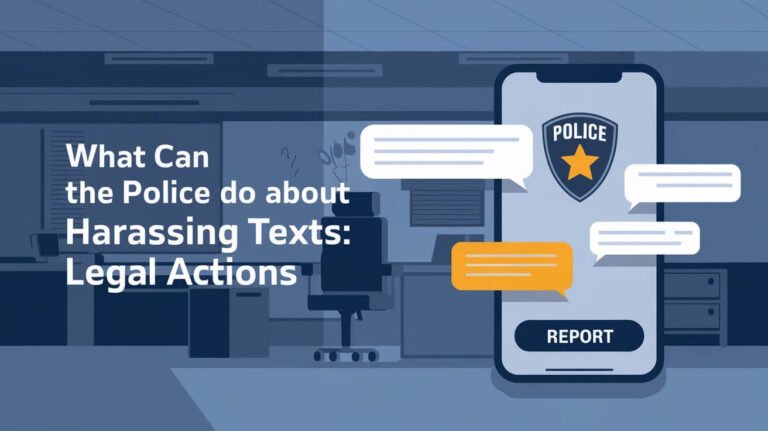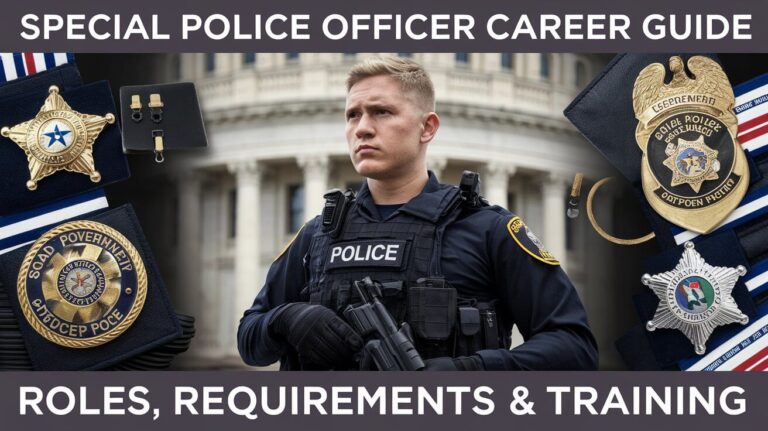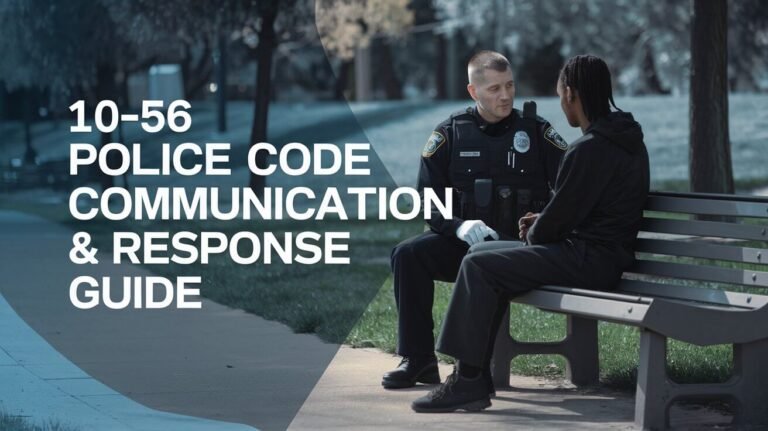Public Safety Officer Vs Police: Key Differences & Roles
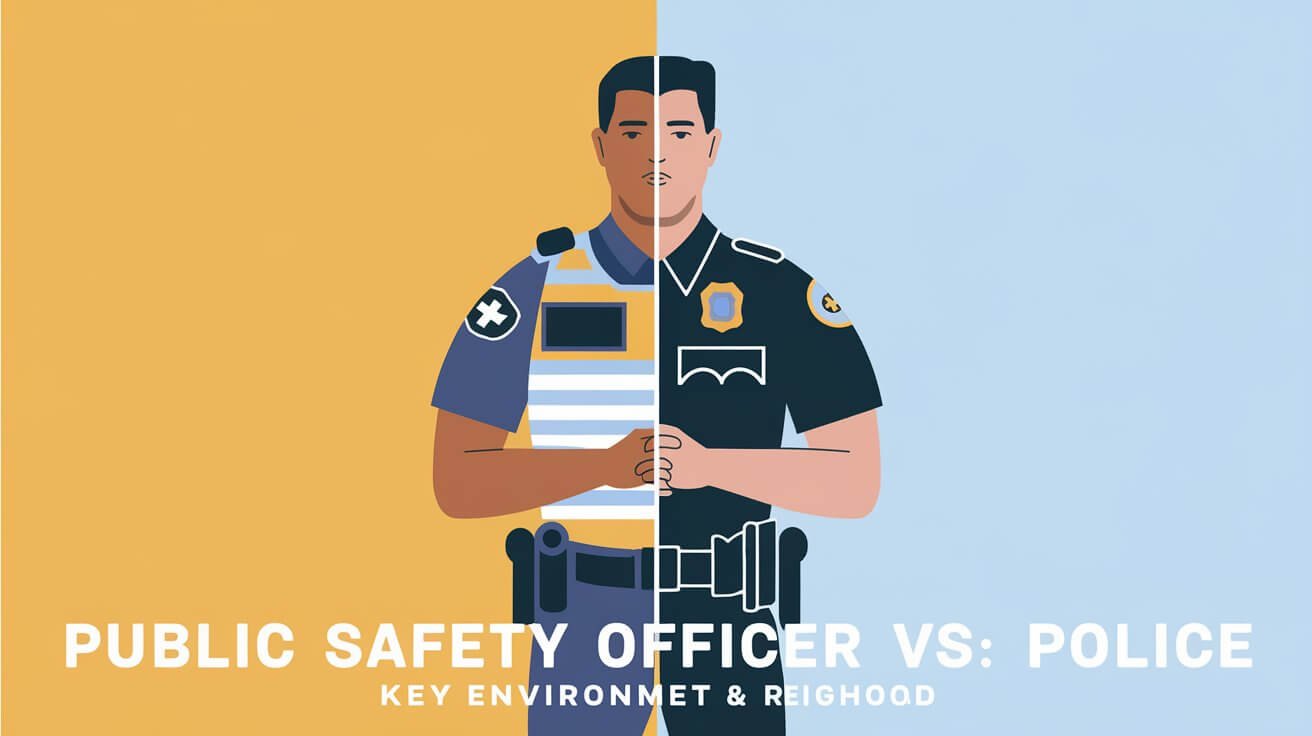
In the world of law enforcement, public safety officers and police officers have key roles. They both aim to keep people safe, but they do it in different ways. Public safety officers mainly keep order and prevent crimes in places like neighborhoods or colleges. Police officers, on the other hand, handle traffic, solve crimes, and catch suspects.
The need for safety jobs is growing. The U.S. Bureau of Labor Statistics says there will be 286,400 new jobs in public safety by 2030. For police and detectives, there will be 67,100 more jobs each year, a 7 percent increase.
As law enforcement changes, it’s important to know the differences between public safety officers and police. This knowledge helps those thinking about a career in this field. It lets them choose the right path and make a real difference in their community.
Public Safety Officer Vs Police: Defining Core Responsibilities
Public safety officers and police officers have different roles in keeping society safe. They share some duties, but their main tasks are unique. Knowing these differences is key for those looking to serve in public roles.
Patrol and Protection Duties
Public safety officers watch over specific areas, like college campuses or hospitals. They focus on keeping those places safe. Police officers, however, cover larger areas. They watch over streets, stop traffic, and give out fines.
Emergency Response Capabilities
Both types of officers are ready to handle emergencies. Public safety officers help protect people and property from crimes and disasters. Police officers also write reports, collect evidence, and secure crime scenes.
Legal Authority and Jurisdiction
The legal powers of public safety and police officers differ. Some public safety officers can arrest people, but others can’t. Police officers can arrest and give fines. What a public safety officer can do depends on where they work.
It’s important to understand the roles of public safety and police officers. This knowledge helps those interested in law enforcement or public service. It helps them choose the right path for their skills and interests.
Career Opportunities in Law Enforcement
The law enforcement field has many career paths for those who want to serve their communities. It includes roles from patrol duties to specialized investigations. These options are perfect for those interested in criminal justice and public safety.
Being a police officer is a well-known job in law enforcement. Police officers keep the peace, handle emergencies, and enforce laws. They also work to build good relationships with the people they serve.
- Recent stats show that 100% of law enforcement agencies in Missouri have openings for police officers.
- To become a police officer in Missouri, you must be at least 21 years old and have a high school diploma or equivalent.
- All candidates for police jobs in Missouri need to be POST certified and U.S. citizens.
Law enforcement also has specialized roles like criminal investigators, federal marshals, police and fire dispatchers, and corrections officers. These jobs need special training and skills. They offer chances for career growth and leadership.
The Law, Public Safety, Corrections and Security cluster is growing fast. It has about 5 million workers in different jobs. This cluster includes emergency management, fire science, first responders, customs and border protection, and more.
Working in law enforcement lets you make a real difference in people’s lives. It also offers chances for professional growth and advancement. Whether you’re interested in community policing, criminal investigation, or correctional services, there are many rewarding careers in law enforcement.
Training Requirements and Qualifications
Those wanting to be law enforcement officers must go through tough training. This training is at police academies and includes special classes. It makes sure officers know their stuff and act with integrity.
Academy Training Standards
Police academy training is a must for those wanting to join law enforcement. It’s a deep dive into many subjects, like:
- Law enforcement tactics and procedures
- Criminal law and investigative techniques
- Crisis response and de-escalation strategies
- Firearms handling and weapons training
- Community collaboration and cultural awareness
This training lasts about five months, with 833 hours of classes. Recruits also face tough physical tests to see if they can handle the job.
Educational Prerequisites
Most law enforcement jobs need at least a high school diploma. But, many agencies want more. An associate degree in criminal justice is now common. It helps you stand out. For higher roles, you might need a bachelor’s or even a master’s degree.
Professional Certifications
Officers also need professional certifications to show they’re serious about their work. These include:
- Crisis Intervention Training (CIT)
- Emergency Medical Responder (EMR) certification
- Defensive Tactics and Firearms Proficiency
- Implicit Bias and Racial Profiling Training
By combining tough officer training, education, and certifications, agencies build a strong team. They aim to keep communities safe and follow strict police reform and accountability measures.
Salary Expectations and Benefits Comparison
Careers in law enforcement, like public safety officer and police roles, offer good pay and benefits. The salary can change based on where you work, the size of the department, and your experience. But, these jobs usually have great pay and perks.
Public safety officers make about $67,000 a year. Police officers earn more, around $77,000 annually. For example, in Connecticut, police officers make over $75,500 on average. Both jobs offer chances to move up and earn more as you gain experience.
| Position | Average Salary | Salary Range |
|---|---|---|
| Entry-Level Police Officer | $81,552 | $81,552 – $139,419 |
| After 30 months (Private First Class) | $89,854 | $81,552 – $139,419 |
| Maximum Earning Potential (Private First Class) | $139,419 | $81,552 – $139,419 |
| Maximum Earning Potential (Corporal) | $146,390 | $81,552 – $146,390 |
| Maximum Earning Potential (Sergeant) | $157,176 | $81,552 – $157,176 |
Law enforcement roles and public service duties offer many benefits. These include paid vacation, retirement plans, and help with education. These benefits help keep the best people in these important jobs.
Jurisdiction and Legal Powers
Public safety officers and police officers have different roles in law enforcement. They have different areas they can work in and what they can do. Knowing these differences is key for those interested in these careers.
Arrest Authority
Police officers can arrest people for many crimes in their area. They can catch suspects, hold them, and take them to the right place. Public safety officers, however, can only arrest for certain crimes or in a specific area.
Citation Issuance Rights
Police officers can give tickets for many things, like speeding or small crimes. This helps them deal with more issues. Public safety officers can only give tickets for certain campus or community crimes.
Geographical Coverage
Police officers cover a big area, like a whole city or county. They can handle emergencies and enforce laws everywhere. Public safety officers work in one place, like a college or a certain area. This means they can’t cover as much ground or do as much.
Frequently Asked Questions
What are the key differences between public safety officers and police officers?
Public safety officers protect people and property in certain areas. They patrol and provide emergency services. Police officers enforce laws and prevent crimes. They work in many places, including neighborhoods and college campuses.
Police officers handle traffic stops and arrests. They also collect evidence. Public safety officers focus on security in specific spots.
What are the typical duties and responsibilities of public safety officers and police officers?
Public safety officers watch over areas and help in emergencies. Police officers patrol and enforce laws. They stop traffic and make arrests.
Public safety officers might not carry weapons. They focus on security in certain places. Police officers have more duties, like writing reports and securing crime scenes.
What are the career opportunities in the fields of public safety and law enforcement?
In public safety, you can work in computer security or emergency management. You could also be a first responder or work in transportation security. In law enforcement, you can work in corrections or drug enforcement.
Police officers have many roles. They can work in corrections or customs and border protection. They also work in drug enforcement and private security.
What are the training requirements and qualifications for public safety officers and police officers?
Public safety officers might need a degree in Public Safety and Security. This degree teaches skills like grant writing and risk assessment. Police officers need an associate degree in Criminal Justice.
Police academy training is required for both. They also need ongoing training in areas like first aid and firearms.
What are the salary and benefits expectations for public safety officers and police officers?
Public safety officers earn about $67,000 a year. Police officers make around $77,000. In Connecticut, police officers earn over $75,500 on average.
Both jobs offer good pay and benefits. Advancement and specialization can lead to higher earnings.
How do the jurisdictions and legal powers of public safety officers and police officers differ?
Public safety officers work in specific areas like college campuses. Police officers have broader areas to cover. Public safety officers often don’t have arrest powers.
Police officers can make arrests and issue citations. Some public safety officers, like those at USC DPS, have arrest powers in California.

